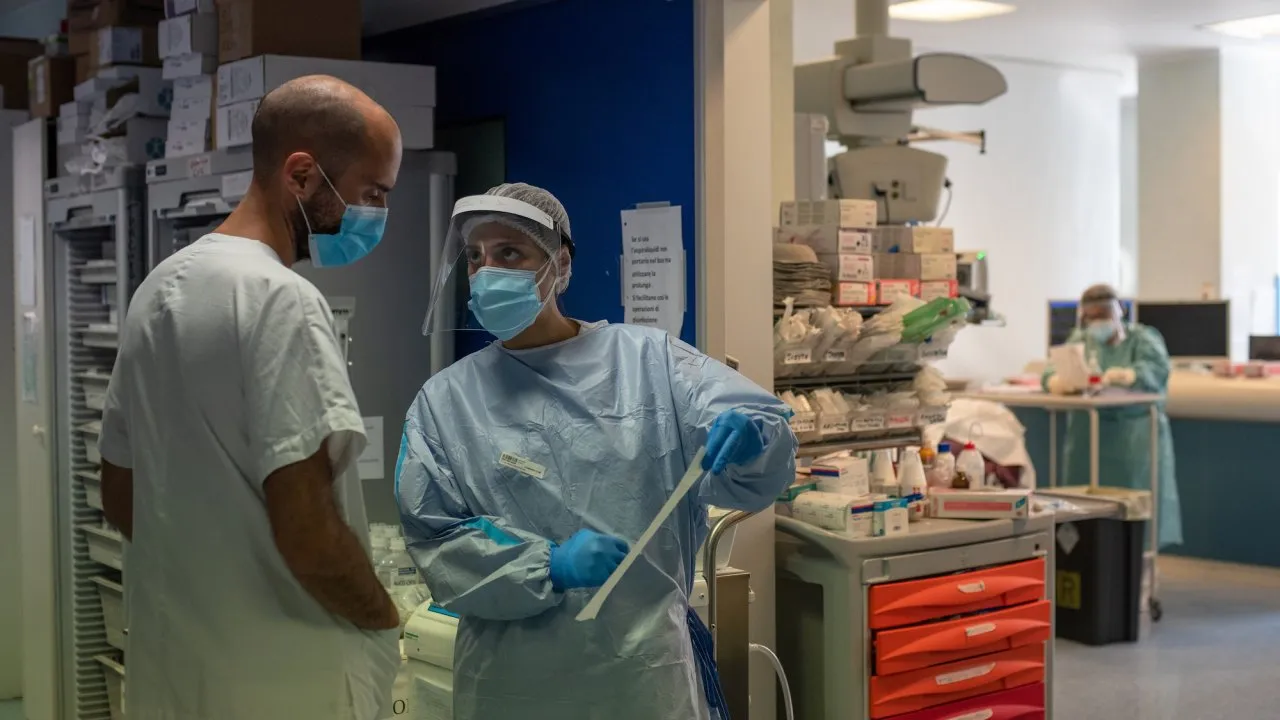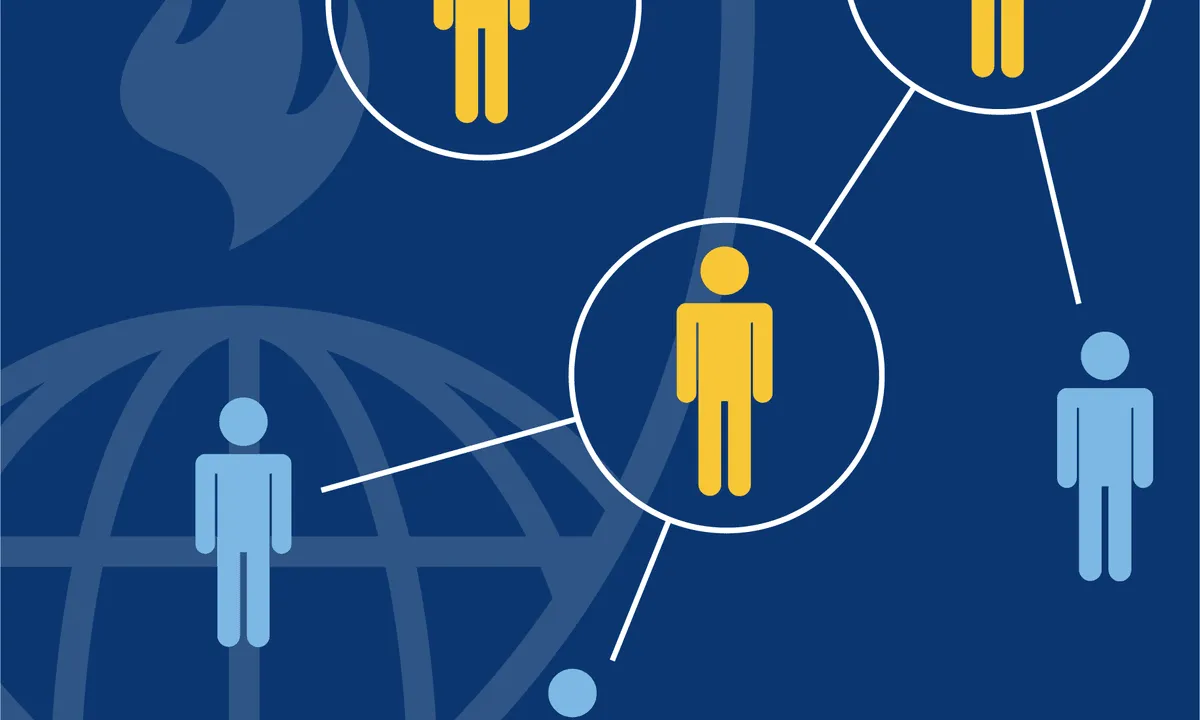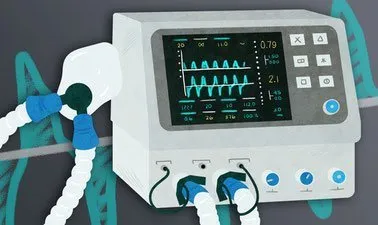
Prevention identification and management of infections in health workers in the context of COVID-19 
Explore the essentials of Prevention, identification and management of infections in health workers in the context of COVID-19 ▼
ADVERTISEMENT
Course Feature
![]() Cost:
Cost:
Free
![]() Provider:
Provider:
OpenWHO
![]() Certificate:
Certificate:
Free Certification
![]() Language:
Language:
English
![]() Start Date:
Start Date:
On-Demand
Course Overview
❗The content presented here is sourced directly from OpenWHO platform. For comprehensive course details, including enrollment information, simply click on the 'Go to class' link on our website.
Updated in [May 19th, 2023]
This course provides an overview of the prevention, identification, and management of infections in health workers in the context of COVID-19. Participants will gain an understanding of the epidemiology and risk factors associated with health worker infections with SARS-CoV-2, as well as measures that can be put in place to reduce risks. Additionally, the course will cover strategies for identifying infection in health workers and managing health workers to safely return to work post infection. The course will also discuss the importance of establishing or strengthening and implementing IPC programmes and Occupational Health and Safety programmes to ensure health worker safety and prevent health worker infections while in the work environment.
At the end of the course, participants will have a better understanding of the prevention, identification, and management of infections in health workers in the context of COVID-19.
[Applications]
It is suggested that healthcare facilities apply the knowledge gained from this course to establish or strengthen and implement IPC programmes and Occupational Health and Safety programmes to ensure health worker safety and prevent health worker infections while in the work environment. Additionally, healthcare facilities should use the course to review measures that can be put in place to reduce risks, support identification of infection in health workers and review strategies for managing health workers to safely return to work post infection.
[Career Paths]
1. Infection Prevention and Control (IPC) Specialist: IPC specialists are responsible for developing and implementing infection prevention and control policies and procedures in healthcare facilities. They work to ensure that healthcare workers are properly trained and equipped to prevent and manage infections in the workplace. As the COVID-19 pandemic continues to evolve, IPC specialists will be increasingly important in helping to protect healthcare workers from infection.
2. Occupational Health and Safety (OHS) Specialist: OHS specialists are responsible for developing and implementing safety policies and procedures in healthcare facilities. They work to ensure that healthcare workers are properly trained and equipped to prevent and manage health and safety risks in the workplace. With the emergence of the COVID-19 pandemic, OHS specialists will be increasingly important in helping to protect healthcare workers from infection.
3. Infectious Disease Physician: Infectious disease physicians specialize in the diagnosis, treatment, and prevention of infectious diseases. They are responsible for diagnosing and treating patients with infectious diseases, as well as providing guidance on infection prevention and control measures. With the emergence of the COVID-19 pandemic, infectious disease physicians will be increasingly important in helping to protect healthcare workers from infection.
4. Epidemiologist: Epidemiologists are responsible for studying the patterns, causes, and effects of health and disease conditions in defined populations. They use their findings to develop strategies to prevent and control the spread of infectious diseases. With the emergence of the COVID-19 pandemic, epidemiologists will be increasingly important in helping to protect healthcare workers from infection.
[Education Paths]
1. Bachelor of Science in Nursing: A Bachelor of Science in Nursing (BSN) is a four-year degree program that prepares students to become registered nurses. It provides a comprehensive education in the field of nursing, including courses in anatomy, physiology, pharmacology, nutrition, and psychology. The BSN program also includes clinical experience in a variety of healthcare settings. This degree is becoming increasingly popular as the demand for nurses continues to grow, and it is a great way to start a career in the healthcare field.
2. Master of Science in Nursing: A Master of Science in Nursing (MSN) is a two-year degree program that prepares students to become advanced practice nurses. It provides a more in-depth education in the field of nursing, including courses in advanced nursing practice, healthcare policy, and healthcare management. The MSN program also includes clinical experience in a variety of healthcare settings. This degree is becoming increasingly popular as the demand for advanced practice nurses continues to grow, and it is a great way to advance a career in the healthcare field.
3. Doctor of Nursing Practice: A Doctor of Nursing Practice (DNP) is a terminal degree program that prepares students to become advanced practice nurses. It provides a comprehensive education in the field of nursing, including courses in advanced nursing practice, healthcare policy, and healthcare management. The DNP program also includes clinical experience in a variety of healthcare settings. This degree is becoming increasingly popular as the demand for advanced practice nurses continues to grow, and it is a great way to become a leader in the healthcare field.
4. Master of Public Health: A Master of Public Health (MPH) is a two-year degree program that prepares students to become public health professionals. It provides a comprehensive education in the field of public health, including courses in epidemiology, biostatistics, health policy, and health promotion. The MPH program also includes clinical experience in a variety of healthcare settings. This degree is becoming increasingly popular as the demand for public health professionals continues to grow, and it is a great way to become a leader in the public health field.
Course Provider

Provider OpenWHO's Stats at AZClass
Discussion and Reviews
0.0 (Based on 0 reviews)
Explore Similar Online Courses

Young People and Their Mental Health

Leadership in Interprofessional Informatics

Python for Informatics: Exploring Information

Social Network Analysis

Introduction to Systematic Review and Meta-Analysis

The Analytics Edge

DCO042 - Python For Informatics

Causal Diagrams: Draw Your Assumptions Before Your Conclusions

Whole genome sequencing of bacterial genomes - tools and applications

COVID-19 Contact Tracing

Mechanical Ventilation for COVID-19


Start your review of Prevention identification and management of infections in health workers in the context of COVID-19